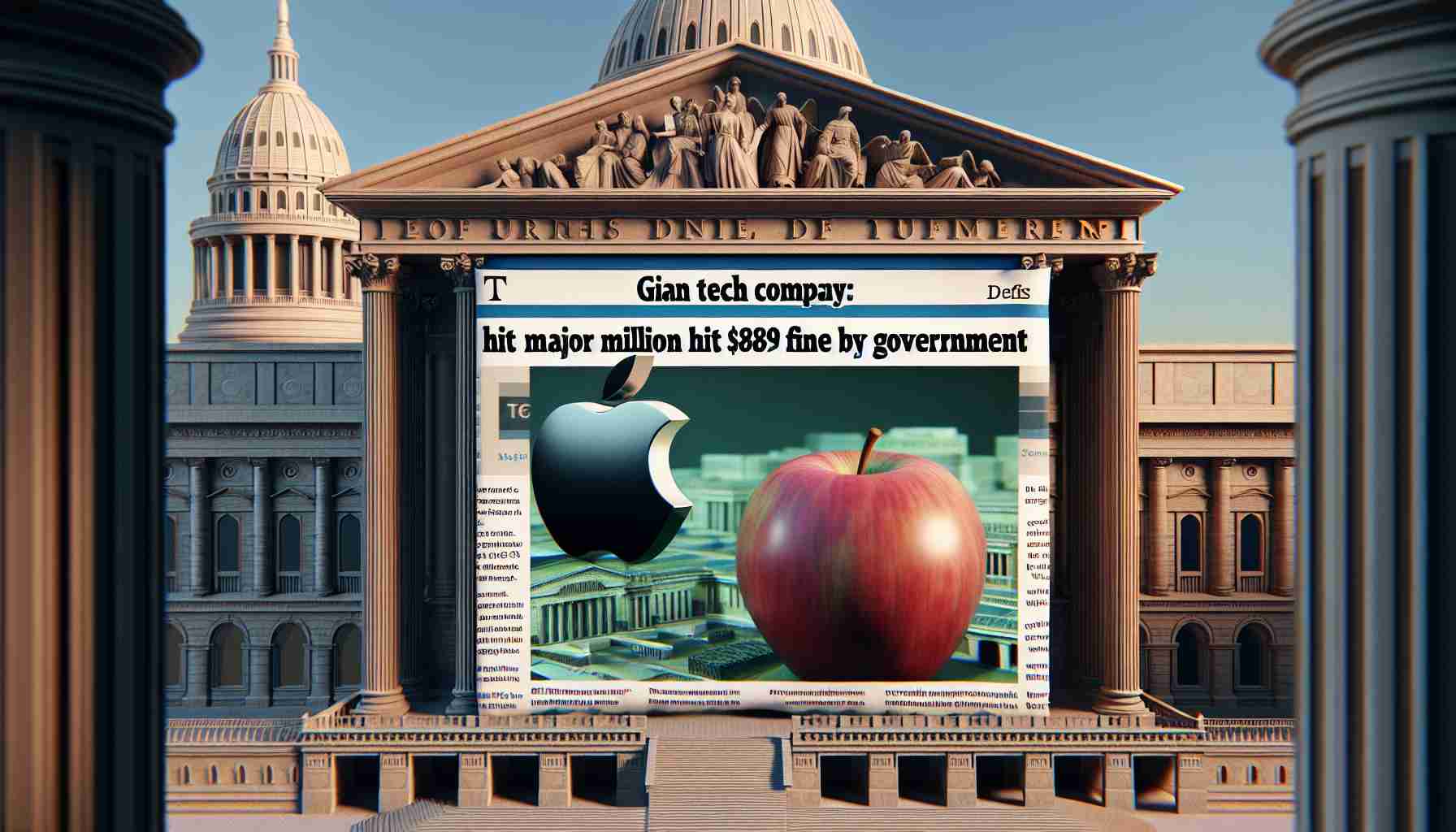In a significant ruling, the United States government imposed a hefty fine exceeding $89 million on tech giant Apple and banking powerhouse Goldman Sachs. This decision arises from allegations that the two companies misled users of the Apple Card, a credit card launched in 2019 through a partnership between them.
The Consumer Financial Protection Bureau (CFPB) reported that failures in customer service and misinformation adversely impacted numerous Apple Card holders. According to official findings, Apple neglected to forward a substantial number of customer disputes concerning credit transactions to Goldman Sachs. The bank, in turn, purportedly failed to adhere to federal standards for properly investigating these claims.
Moreover, the CFPB voiced concerns that the two companies provided misleading assurances regarding the automatic availability of interest-free payment plans for Apple device purchases. This oversight led to unexpected debts for consumers who believed they were opting into these plans.
In response to these findings, the CFPB made it clear that Goldman Sachs would be prohibited from launching any new consumer credit cards unless compliance with legal standards could be demonstrated. They criticized the launch of the Apple Card, noting prior warnings about significant technological challenges.
Both Apple and Goldman Sachs have expressed their disagreement with the CFPB’s portrayal of events, although they acknowledged addressing issues presented by customers after the launch. Penalties for the two companies include a combined total of fines and compensations, with Goldman Sachs facing a more substantial financial burden.
US Government Imposes $89 Million Fine on Apple and Goldman Sachs: Implications and Reactions
In a ruling that has sent ripples through the financial and technology sectors, the United States government has slapped Apple and Goldman Sachs with a combined fine of over $89 million. The penalty stems from allegations that the duo misled Apple Card users and violated consumer protection standards.
Overview of the Charges
According to the Consumer Financial Protection Bureau (CFPB), the accusations against Apple and Goldman Sachs are multifaceted. A primary concern was the alleged failure of Apple to transmit customer disputes related to credit transactions to Goldman Sachs. The CFPB disclosed that several consumers faced unaddressed disputes that left them at a disadvantage.
Additionally, users of the Apple Card were reportedly misled regarding the terms of interest-free payment plans, which led to unexpected financial burdens for many. As a result, the CFPB has mandated that Goldman Sachs must prove compliance with federal guidelines before introducing any new consumer credit cards.
Key Questions and Responses
1. What led to the regulatory scrutiny of Apple and Goldman Sachs?
– The investigation was sparked by numerous consumer complaints related to the handling of disputes and the alleged misinformation regarding payment plans offered through the Apple Card.
2. How are consumers affected by these findings?
– Consumers were unprepared for financial obligations they believed were interest-free, creating potential debt issues and confusion regarding their credit agreements.
3. What are the next steps for Goldman Sachs in light of this ruling?
– Goldman Sachs must address the CFPB’s compliance requirements and demonstrate effective changes in their customer service processes before being permitted to launch new credit initiatives.
Challenges and Controversies
The ruling presents several challenges for both companies. For Apple, this marks a significant blemish on its brand reputation, which prides itself on customer satisfaction. Similarly, Goldman Sachs faces intensified scrutiny over its consumer banking operations, which have already been under examination in multiple instances.
Moreover, the ruling raises broader questions about accountability in partnerships between technology firms and traditional banks. Critics argue that greater transparency is needed to protect consumers in such collaborations.
Advantages and Disadvantages
The outcome of this ruling has varying advantages and disadvantages:
– Advantages:
– Enhanced consumer protection: The CFPB’s actions may lead to stronger safeguards for consumers in the future.
– Improved corporate accountability: Companies may be prompted to better uphold their obligations, reducing the likelihood of similar issues arising.
– Disadvantages:
– Stifled innovation: Stricter regulations could hinder the development of new financial products and services that innovate in customer experience.
– Financial implications: The hefty fines and potential operational changes may impact both companies’ bottom lines, possibly affecting their overall market strategies.
Future Implications
As Apple and Goldman Sachs work to rectify the issues identified by the CFPB, this ruling could set a precedent for how tech and finance companies approach consumer relations and regulatory compliance. Financial institutions may become more cautious about partnerships with tech companies, while technology firms might reconsider their customer service frameworks wanting to avoid similar pitfalls.
For readers interested in further exploring consumer rights in the financial sector, you may refer to Consumer Financial Protection Bureau for detailed insights and advocacy resources.
In conclusion, while the ruling may seem punitive, it serves as a critical reminder of the importance of transparency and accountability in consumer finance.

















